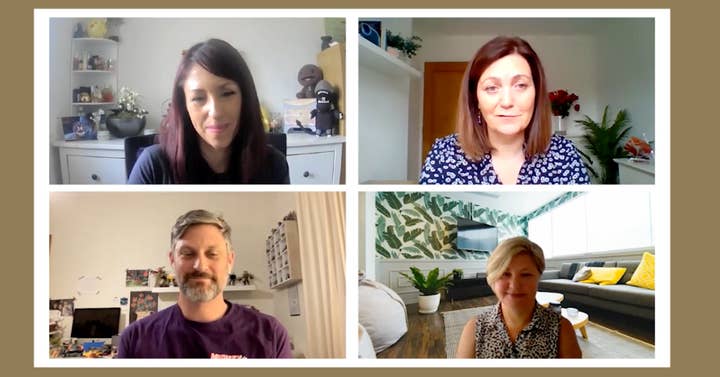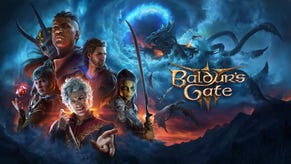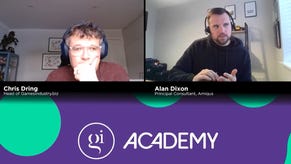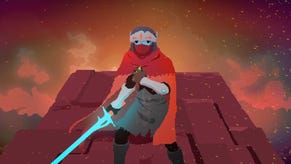Creating a diverse future for the games industry
As part of our Best Places To Work week, Amiqus' Liz Prince sat down with three panellists to talk about how diversity and inclusion can lead to a better future
Diversity and inclusion is a topic getting more and more attention in the games industry. Yet our panel called its talk "We're not talking about diversity, we're talking about the future," to avoid negative connotations with the term diversity and inclusion.
"I've noticed a diversity and inclusion fatigue if you will, lots of companies see D&I as something to consider, but they put it in a little corner or project, without realising the genuine benefits you can get from being diverse and inclusive," said Rina G Lynch, founder of diversity and inclusion consultancy Voice At The Table. "Instead, the question to ask is 'how can we make ourselves more diverse, more inclusive, more successful in the future?'"
The idea the panel purported is that instead of making companies without diversity and inclusion concepts as obviously lacking, creating negative connotations, it would be a better idea to highlight the many benefits of diversity and inclusion -- benefits every company is equally interested in.
Impacts of exclusion
Still, the first topic the panel turned to were the impacts of exclusion on any company -- but also why exclusion and diversity efforts are so rewarding. Lynch summarised the benefits succinctly:
"The future is about diversity. It gives you access to creativity, innovation, an broader pool of talent."
In turn, Philip Mayes, managing director at Mighty Kingdom, highlighted what exclusion means for companies: "In a non-diverse space, you're only drawing from a limited talent pool and you're only drawing from a limited set of ideas. You're about to become a bit of an echo chamber as an organisation or an industry. You start missing opportunities. If you only hear from people who sound like you or look like you, that becomes a diminishing pool of opportunity.
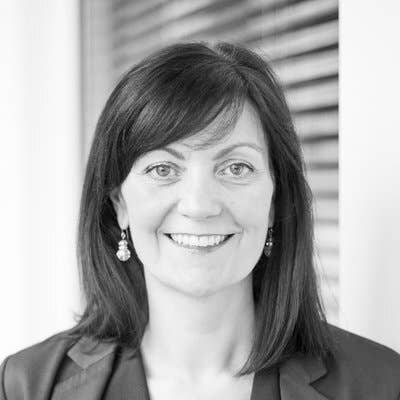
"One of the biggest pieces of advice that I give to companies starting to think about D&I is to imagine the future of the business, think about where you want to be in five or ten years' time and start to make a plan, start to make targets that you can actually measure towards."
Emma Smith, head of talent at Creative Assembly, echoed the importance of measurable goals and suggested that looking at, and talking to, other companies that have already implemented D&I frameworks can help set up measurable goals and perhaps even provide an element of accountability.
"You need to kind of know where you're at -- who are we, where do we want to go?" she said. "Engage with people outside of your own organisation, and learn from other people or studios that are further along in the D&I journey. Don't look at where you haven't gone in terms of being inclusive as something wrong, but see it as a voyage of discovery and wanting to arrive somewhere better."
How to integrate D&I into every company's plan for the future
However obvious the benefits of diversity and inclusion measures sound, and how important it is to start the thinking process, the panel agreed that the time and effort it takes to make a studio more inclusive can act as a deterrent.
"Diversity and inclusion as a concept is easy to understand, to actually implement it takes a lot of time, and it's a big culture change and behavioural change," said Lynch.
However, she stressed that it's never too late for a company to become more diverse, and that, just like with any other task, small steps eventually compound to facilitate change.
"It's important to understand that you won't make these changes within a year or two, and I think in an industry that is growing so fast, it's difficult to align this with how much time other things such as game development take," she said.
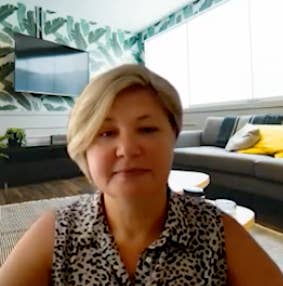
Mayes calls the process towards more diversity and inclusion at Mighty Kingdom a ten-year journey, throughout which he learned to look past some of the signifiers people generally associate with the topic.
"There's not just ethnicity and gender, but also diversity of thought -- you can have a 50/50 gender parity in a studio, but if you all went to the same private school, you're all thinking the same thoughts," he said. "Game companies are often in survival mode, and when you're in that mode it's hard to think beyond the next payroll, but you don't just want to survive, you want to thrive -- you can put effort into these things and have success, it's not an either or situation, D&I will actually feed into your success."
Emma Smith is interested in raising the next generation of diverse talent for the games industry. As part of talent outreach and her own efforts to raise awareness of work in the games industry as an option among minorities, she visits schools and talks to student and parents.
"You can have a 50/50 gender parity in a studio, but if you all went to the same private school, you're all thinking the same thoughts"Philip Mayes
She noticed the games industry had an image problem, with particularly girls and their parents saying that it wasn't an environment that they wanted their children to encourage to go into, as she puts it.
For Smith, it made a difference to not just talk about, but show young people the work environment at Creative Assembly, so that people could perceive games as an actual place of work they might fit into. According to her, games companies can also help level the playing field for future talent by other practical actions, such as providing access to technology through donations and software, making an investment into future game developers an investment into the games industry on the whole.
The effects of unconscious bias on the hiring process and how to deal with them
Unconscious bias is a word that comes up in many discussions about race, but Lynch prefers the term 'things we don't know', in order to avoid the negative associations many people have with the concept of bias. By comparison, 'things we don't know' suggests the possibility of learning. But everyone deals with unconscious bias, regardless of background, making it something to look out for particularly as part of the hiring process.
Unconscious bias doesn't only mean rejecting applicants with certain names (a 2015 study by the National Bureau of Economic Research found that people with English names like 'John' are more likely to be hired), it can also mean treating a candidate more favourably simply because they share hobbies or their place of birth with the hiring manager.
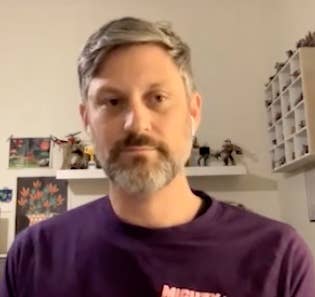
But positive unconscious bias can be combated in the same way as negative bias, Lynch said.
"Look for and ask yourself what you don't like about a candidate, because then the very things you don't like are the things you should be appreciating. Don't just think about how you choose candidates according to what you like about them, but also what you don't like."
According to Mayes, Mighty Kingdom has found a novel advantage to unconscious bias: "I found that people like other people who remind them of themselves, so if it's just a bunch of white guys making those hiring decisions then -- surprise, surprise -- you end up with more of the same.
"At Mighty Kingdom, we've found a way to use unconscious bias to our advantage. Part of our process is to involve a lot of different people in our studio in the reviews and interviews, and the more diverse your studio is, the more people from diverse backgrounds will hire people that remind them of themselves."
But encouraging D&I in our hiring process doesn't mean getting rid of your hiring manager, as Smith pointed out.
"Self-awareness in the hiring process is key, as is the ability to be vulnerable. It is okay for a hiring manager to look back at some of the decisions they've made and say 'maybe these decisions haven't served us well, how can I be better' or to get feedback on how they've made candidates feel -- have I made them feel like they were heard, give them a voice, did you really listen," she said.
Assess your candidates for growth
Despite the dangers of unconscious bias, to our panellists the hiring process is another point at which diversity and inclusion offers many benefits. Hiring processes optimised for inclusion see applicants as a whole human being, rather than someone filling a skill gap. Candidates should be assessed for growth, meaning their future potential, rather than just the skills they have at the point in time you interview them.
"When we're hiring someone, we're thinking of them as a person, and so we're not thinking about what problems they are going to solve next month, we're thinking about their career of hopefully several years with us," said Mayes. "When you evaluate people on those timescales you're not so much thinking about what a person can bring today, but rather what their potential is."
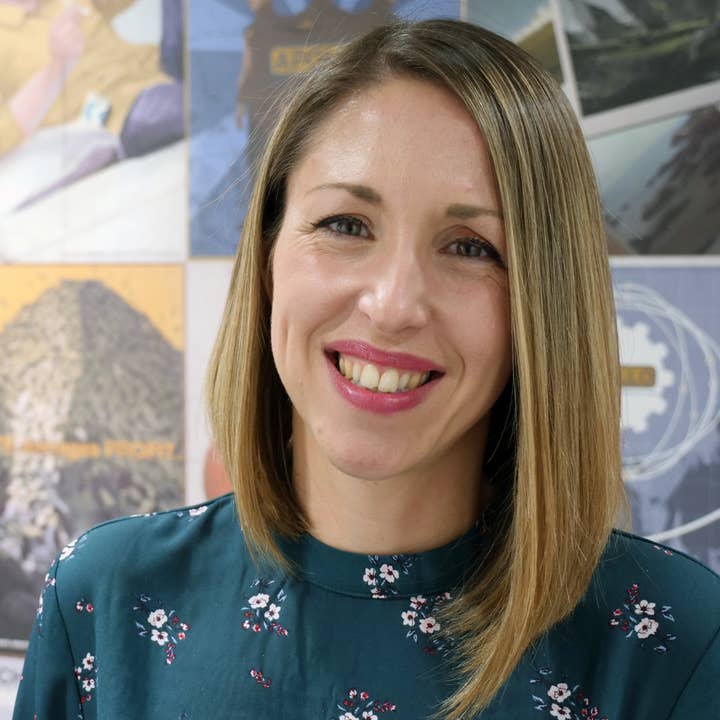
Smith suggested to also always keep an eye on existing team members that could fill the position you're hiring for, this bolstering retention.
"Internal recruitment and internal mobility is becoming more and more important. You need to give people somewhere to grow, because if they don't grow in your organisation, they will grow somewhere else," she said.
But in order to give new talent a chance to enter the industry and grow within it, studios may have to rethink their whole hiring process.
"The hiring processes we use were developed years and years ago, and they're often designed to weed people out as quickly as possible," Smith continued. "Instead of looking for reasons not to hire someone, look for reasons to hire them."
That means letting go of the idea of a perfect interview -- Mayes offered an example of a candidate who's CV looks a little weak but who impresses in an interview.
"When we hire people, we think about all that they bring, not just their technical skill. We can improve their technical ability with training and in-house tools, but it's all the other lived experience they bring that can add to the discussion at the studio," he said.
"Ask yourself what you don't like about a candidate, because then the very things you don't like are the things you should be appreciating"Rina G Lynch
Mighty Kingdom removed CVs from the early screening process of their graduate program, realising that evaluating candidates by the values and motivations they've revealed as part of the interview allows more candidates from diverse backgrounds to actually make it through the interview.
To Smith, the opposite case, where a candidate has a strong CV but struggles in the interview, is also an opportunity for inclusion: "We should give a candidate the room to bring their best selves to that conversation, whether that's someone who's shy or neurodiverse. Even some of the most experienced people get very, very nervous, and for the hiring manager to make these people feel comfortable is a skill in and on itself."
How to make diversity and inclusion efforts stick
As with any other culture change, D&I measure require continuous commitment. Accountability and open conversation about your progress towards a more diverse and inclusive workplace holds you accountable, but also reinforces that you are not alone on the journey.
Lynch suggested an initiative from outside the games industry that reinforces that diversity is really about connecting people. Called "There to tell," it entails encouraging staff to talk about their lived experience. Lynch said modifying that idea into "There to ask" in turns lets people asks questions about topics and customs they are not familiar with but want to learn more about, such as Ramadan or the lived experience of a transgender colleague.
Smith added that if certain policies are already in place, for example policies that aid women in their role as caretakers, such policies should be opened up to apply to everyone. This normalises asking for help. After all, men can have childcare duties, and mental health emergencies are just another form of health emergency.
"Remember that you want to have a brilliant, innovative industry, so it needs to be at the heart of what you do -- your values, how you make your games, how you hire, what people you want to play your games," she said. "Life experience and values is what makes it stick. If you have people who are passionate about driving that change, encourage them and support them, help them help you. We want to have an industry for the future, and it's a team effort to create it."
This panel is also available as a podcast. You can find The GamesIndustry.biz Podcast on the podcasting platform of your choice, or download this episode directly here.
